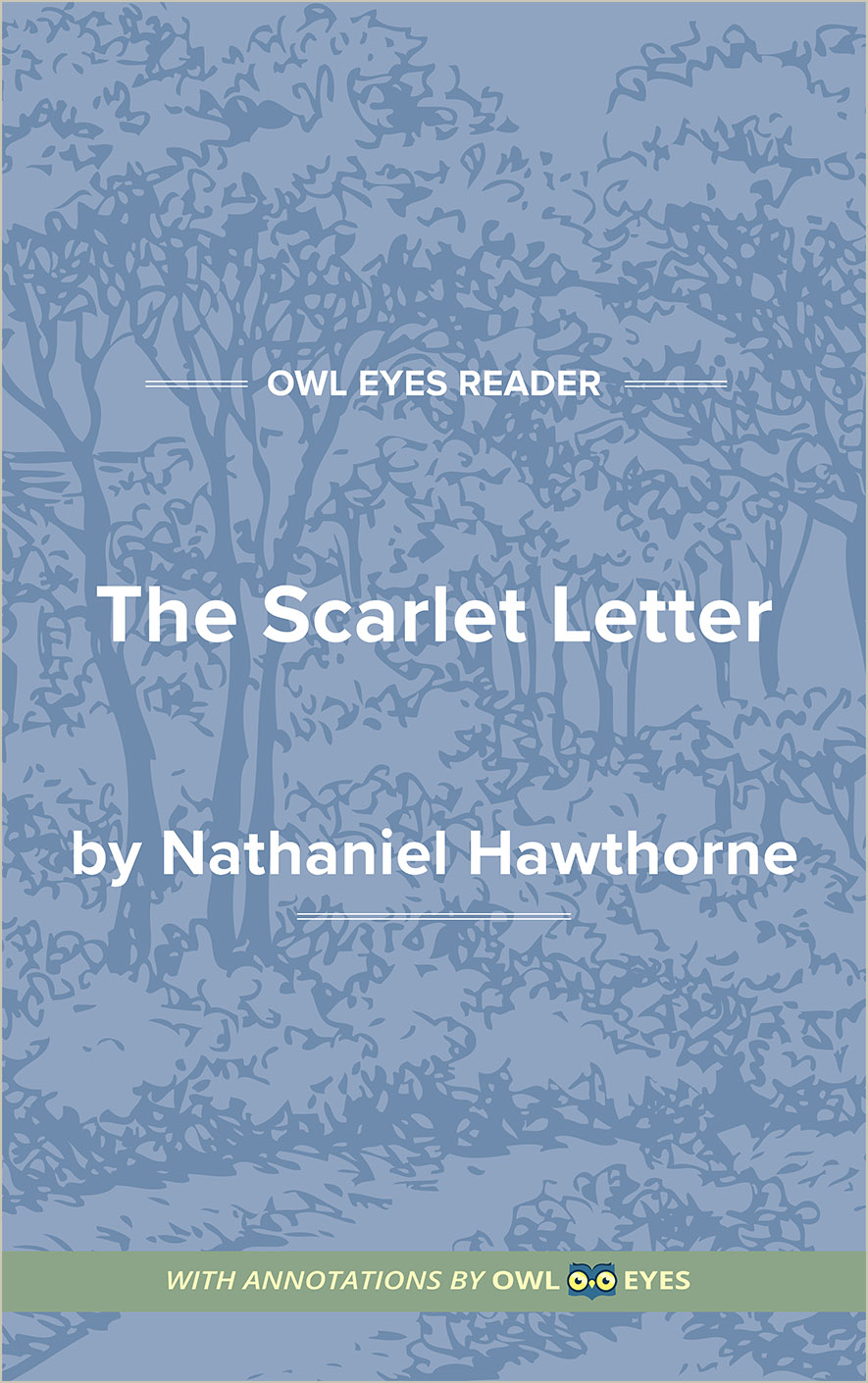Study Guide
Analysis Pages
Summary
On a summer morning in Boston, in the early days of the Massachusetts Colony, a throng of curious people gather outside the jail in Prison Lane. They are there looking for Hester Prynne, who was found guilty of adultery by a court of stern Puritan judges. Condemned to wear on the breast of her gown the scarlet letter A, which stands for adulterer, she is to stand on the stocks before the meetinghouse for three hours so that her shame might be a warning and a reproach to all who see her. The crowd waits to see her ascend the scaffold with her child—the proof of the adultery, Hester’s husband being absent—in her arms.
At last, escorted by the town beadle, the woman appears. She moves serenely to the steps of the scaffold and stands quietly under the staring eyes that watch her public disgrace. It is whispered in the gathering that she is spared the penalty of death or of branding only through the intercession of the Reverend Arthur Dimmesdale, into whose church she brought her scandalous sin.
While Hester stands on the scaffold, an elderly, almost deformed man appears out of the forest. When her agitation makes it plain that she recognizes him, he puts his finger to his lips as a sign of silence.
Hester’s story is well known in the community. She is the daughter of an old family of decayed fortune; when she was young, her family married her to a husband who had great repute as a scholar. For some years, they lived in Antwerp. Two years later, the husband sent his wife alone across the ocean to the Massachusetts Colony, intending to follow her as soon as he could put his affairs in order. News came of his departure, but his ship was never heard of again. The young, attractive widow lived quietly in Boston until the time of her disgrace.
The scaffold of the pillory on which Hester stands is situated next to the balcony of the church where all the dignitaries of the colony sit to watch her humiliation. The ministers of the town call on her to name the man who is equally guilty; the most eloquent of those who exhorts her is Dimmesdale, her pastor. Hester refuses to name the father of her child, and she is led back to the prison after her period of public shame ends.
On her return to prison, Hester is found to be in a state of great nervous excitement. When at last medical aid is called, a man is found who professes knowledge of medicine. His name is Roger Chillingworth, he tells the jailer, and he recently arrived in town after a year of residence among the Indians. He is the stranger who appeared so suddenly from the forest that afternoon while Hester stood on the scaffold, and Hester recognized him immediately as her husband, the scholar Prynne. His ship was wrecked on the coast, and he was a captive among the Indians for many months. When he comes to Hester, he, too, asks her to name the father of her child. When she refuses, he tells her he will remain in Boston to practice medicine and that he will devote the rest of his life to discovering the identity of the man who dishonored him. He commands Hester not to betray the relationship between them.
When Hester’s term of imprisonment is over, she finds a small house on the outskirts of town, far removed from other habitation. There, with her child, whom she names Pearl, she settles down to earn a living from needlework, an outcast from society. She still wears the scarlet emblem on the breast of her sober gowns, but she dresses her child in bright, highly ornamented costumes. As she grows up, Pearl proves to be a capricious, wayward child, hard to discipline. One day, Hester calls on Governor Bellingham to deliver a pair of embroidered gloves. She also wants to see him about the custody of Pearl, for there is a movement afoot among the strict church members to take the child away from her. In the garden of the governor’s mansion, Hester finds the governor, Dimmesdale, and old Chillingworth. When the perverse child refuses to repeat the catechism, the governor thinks it...
(The entire page is 1,460 words.)
Owl Eyes subscribers get unlimited access to our expert annotations, analyses, and study guides on your favorite texts. Master the classics for less than $5/month!

